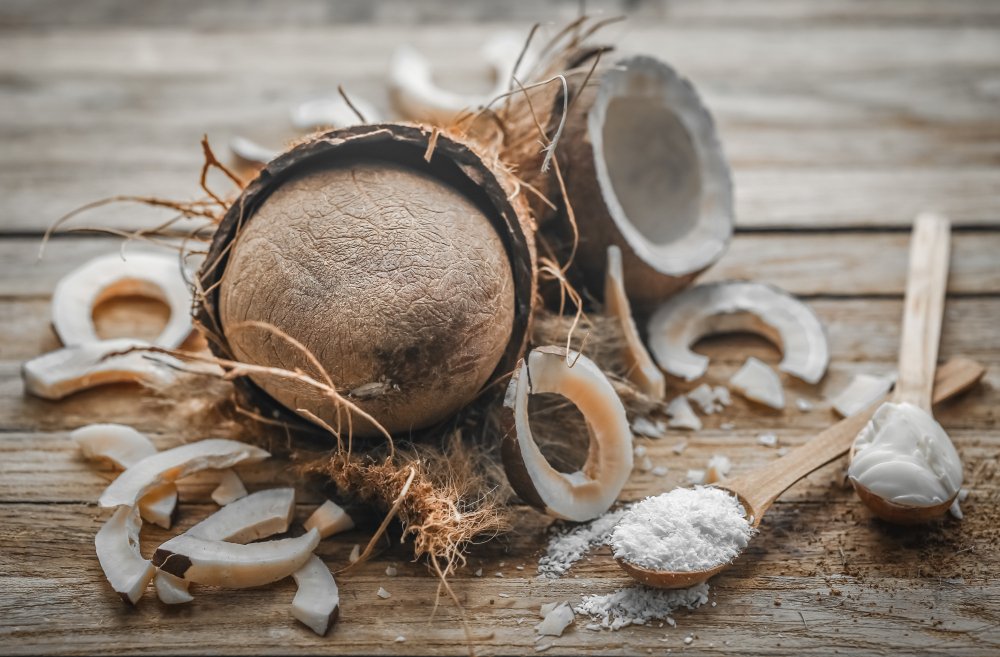The coconut, a tropical marvel, is far more than just a refreshing drink on a hot day. Its versatility extends to a vast array of products, from culinary delights like coconut oil and milk to cosmetic ingredients and biofuels. Global demand for these coconut-derived products is surging, presenting exciting opportunities for exporting nations. This article explores the trends and prospects of coconut product exports in the coming years, highlighting the potential for sustainable growth and economic prosperity.
A Booming Global Demand for Coconut
The global appetite for coconut products is experiencing an undeniable boom, driven by several key factors. Firstly, the rising awareness of the health benefits associated with coconut oil, particularly its medium-chain triglycerides (MCTs), has fueled its popularity as a healthy cooking oil and dietary supplement. This trend is particularly strong in health-conscious markets in North America, Europe, and Asia. Secondly, the versatility of coconut in various food and beverage applications continues to expand. From coconut water’s rise as a refreshing sports drink to the incorporation of coconut flakes and cream in an ever-growing range of desserts and confectionery, the culinary applications seem limitless. Thirdly, the cosmetic and personal care industries are increasingly utilizing coconut oil and its derivatives for their moisturizing and nourishing properties, further boosting demand. Finally, the growing interest in natural and organic products is a significant driver, solidifying coconut’s position as a sought-after ingredient.
The demand is not limited to specific product types. Coconut water, once a niche product, has become a mainstream beverage, enjoying widespread popularity across various demographics. Coconut oil’s use extends beyond culinary applications; its use in skincare and haircare products is rapidly expanding. Even coconut shell and husk, previously considered waste, are finding new life as sustainable materials for crafting and biofuel production. This diversification of applications ensures a robust and resilient market, less susceptible to fluctuations affecting single product categories. This multifaceted demand creates a strong foundation for continued growth in the coming years.
This burgeoning demand translates directly into significant export opportunities for coconut-producing countries. The global market is vast and diverse, offering exporters access to a wide range of potential buyers and consumers. This global reach lessens the reliance on any single market, mitigating risks associated with economic downturns or shifts in consumer preferences within a specific region. The increasing demand for ethically sourced and sustainably produced coconut products further presents opportunities for producers who prioritize responsible farming practices.
The expansion of e-commerce and online marketplaces has also dramatically increased accessibility to international markets for coconut producers, particularly small and medium-sized enterprises (SMEs). This digital revolution has reduced barriers to entry and allows for direct engagement with consumers worldwide, bypassing traditional intermediaries and enhancing profitability. This trend is particularly significant for those producers who may have previously lacked the resources to reach international markets.
Unlocking Coconut’s Export Potential
To fully capitalize on the booming global demand, coconut-producing countries must focus on several key strategies. Improving agricultural practices and yields is paramount. Investing in research and development to enhance coconut productivity and disease resistance will significantly increase the volume of exportable products. This includes exploring innovative farming techniques and utilizing advanced technologies to optimize yields and minimize environmental impact. Furthermore, promoting sustainable and ethical farming practices is crucial for maintaining the long-term viability of the industry and appealing to environmentally conscious consumers.
Value addition is another crucial element in unlocking coconut’s export potential. Instead of exporting raw coconuts, processing them into higher-value products like coconut oil, desiccated coconut, and coconut flour significantly increases profitability. This requires investment in processing infrastructure and technology, along with training programs to equip local communities with the necessary skills. Diversification into new and innovative coconut-based products, such as coconut-based plastics or biofuels, also offers exciting opportunities for growth and diversification.
Strengthening logistics and infrastructure is essential for efficient and cost-effective export operations. This includes improving transportation networks, enhancing port facilities, and streamlining customs procedures. Investing in cold chain infrastructure is particularly crucial for preserving the quality and extending the shelf life of perishable coconut products, ensuring they reach international markets in optimal condition. This is especially important for products like coconut water and fresh coconut meat.
Market access and trade facilitation are equally important. Negotiating favorable trade agreements and reducing tariffs can significantly improve the competitiveness of coconut exporters. Promoting coconut products through targeted marketing campaigns and participation in international trade fairs can further increase brand awareness and market penetration. Building strong relationships with international buyers and distributors is also key to establishing long-term export partnerships.
Navigating the Future of Coconut Trade
The future of coconut trade will be shaped by several emerging trends. The growing emphasis on sustainability and ethical sourcing will play a dominant role. Consumers are increasingly demanding transparency and traceability in their supply chains, requiring producers to demonstrate commitment to environmentally friendly and socially responsible practices. Certifications like Fairtrade and organic labels will become increasingly important for market access.
Technological advancements will also significantly influence the coconut industry. Precision agriculture techniques, data analytics, and automation will enhance productivity, efficiency, and sustainability. Blockchain technology can improve transparency and traceability within the supply chain, building consumer trust and combating fraud. These technological innovations will not only improve efficiency but also enhance the overall quality and safety of exported products.
Geopolitical factors will also play a role. Trade policies, international agreements, and political stability in producing countries will all influence the flow of coconut products across borders. Diversification of export markets and reducing reliance on any single buyer are crucial strategies for mitigating risks associated with geopolitical uncertainties. Building resilient supply chains is essential for weathering potential disruptions.
Climate change poses a significant challenge to the coconut industry. Changes in rainfall patterns, rising sea levels, and increased pest and disease outbreaks threaten coconut production in many regions. Investing in climate-resilient farming practices, developing drought-tolerant coconut varieties, and implementing effective pest and disease management strategies are crucial for ensuring the long-term viability of the industry. Adaptation and mitigation strategies are essential for navigating the challenges of a changing climate.
Sustainable Growth: A Coconut Vision
The long-term success of the coconut industry hinges on a commitment to sustainable growth. This requires a holistic approach that integrates economic, social, and environmental considerations. Fair trade practices, ensuring fair prices for producers and promoting decent working conditions, are fundamental to sustainable development. Empowering local communities and investing in education and skills development will build a more resilient and prosperous coconut industry.
Protecting biodiversity and preserving natural ecosystems is crucial for the long-term health of coconut production. Sustainable farming practices, such as agroforestry and integrated pest management, minimize environmental impacts and contribute to biodiversity conservation. Reducing water consumption and minimizing waste are also key aspects of sustainable coconut production. These practices not only protect the environment but also enhance the reputation and market value of sustainably produced coconut products.
Investing in research and development is vital for enhancing the sustainability and resilience of the coconut industry. This includes developing climate-resilient coconut varieties, exploring innovative processing techniques, and researching new applications for coconut by-products. Collaboration between researchers, producers, and policymakers is crucial for driving innovation and ensuring the industry’s long-term sustainability.
A sustainable coconut vision requires a collaborative effort involving governments, producers, consumers, and international organizations. Policy support, including incentives for sustainable farming practices and investments in infrastructure, is essential. Consumer education and awareness campaigns can drive demand for sustainably produced coconut products, rewarding producers who prioritize environmental and social responsibility. This collaborative approach will ensure the coconut industry thrives for generations to come.
The future of coconut product exports is bright, brimming with opportunities for economic growth and sustainable development. By embracing innovation, prioritizing sustainability, and fostering collaboration, coconut-producing countries can unlock their full export potential and contribute to a more prosperous and equitable future. The versatile coconut, a symbol of tropical abundance, holds the key to unlocking significant economic benefits while safeguarding the environment and empowering communities. The journey towards a sustainable coconut vision requires a concerted effort, but the rewards are undeniably worth pursuing.


